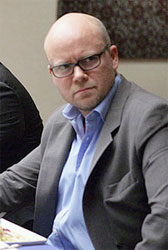A Norwegian administrative court on Friday said a ban on police women wearing the Islamic headscarf was illegal, in response to a government refusal in 2009 to allow officers to don the hijab.
The Norwegian Equality Tribunal said in a non-binding opinion that the ban ran counter to the country’s freedom of religion and anti-discrimination laws by depriving a whole category of women from access to the police profession.
“The official objective is for the police to mirror Norwegian society as a whole,” the tribunal wrote in its ruling. “The society is multi-cultural and diverse, and the police should also illustrate this diversity, precisely to allow it to maintain trust at large” among the population, it added.
After a Muslim woman said she wanted to become a police officer, but did not want to remove her hijab, Norway’s centre-left government last year first approved a police decision to allow its female officers to wear the Islamic headscarf.
However, the ruling coalition quickly backtracked after the decision sparked outrage and charges from the largest member of the opposition, the far-right Progress Party, that it was allowing the “gradual Islamisation” of the country.
The justice ministry, which theoretically can choose to ignore the ruling, did not immediately respond to requests for comment.

 Spain’s Parliament on Tuesday rejected a proposal to ban women from wearing in public places Islamic veils that reveal only the eyes.
Spain’s Parliament on Tuesday rejected a proposal to ban women from wearing in public places Islamic veils that reveal only the eyes. In an interview with the
In an interview with the